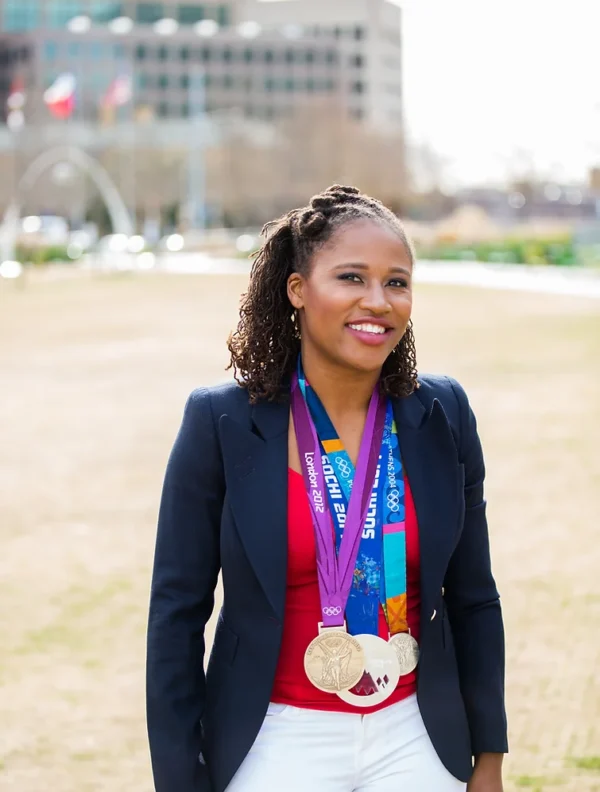Olympic fame might seem like a ticket to lifelong financial stability, but for Lauryn Williams, it was a path filled with unexpected money disappointments. The track and bobsled star, who earned $200,000 a year at age 20 through sponsorship from Nike, in sponsorships, found herself working an internship at $12 an hour by the time she was 30 as she transitioned out of sports.

Williams made history as the first American woman to medal in both the Summer and Winter Olympics. However, despite her groundbreaking achievements, the financial rewards of her athletic career did not extend as far as expected.
Williams Talks Beyond the Medals
“The news coverage came, but the sponsors didn’t,” Williams told CNBC “Make It.” “I made $80,000 the year I became the first American woman to medal in the Summer and Winter Olympics. The reality was quite different from the public perception.”
Williams faced the challenge of re-entering the workforce. By 2013, at the age of 30, she began an internship at Briaud Financial Advisors.
“I felt kind of insecure that I didn’t have any real work knowledge,” she said. “I was behind the ball because I was 30 years old and just starting, whereas I had friends who were already doctors and lawyers.”
Williams pointed out the importance of having a financial plan beyond athletic career earnings. “Even with a $200,000 income, the money doesn’t go as far as people think,” she explained to CNBC. “It set me up better than the average person by the time I was 30, but it didn’t mean I could retire forever.”
After her internship she wound up taking a job with the company before venturing out on her own. She decided she wanted to focus on helping other athletes navigate the financial landscape.
Despite her substantial income from sponsorships, high fees and taxes reduced the effective value of her earnings. Williams became motivated to better understand personal finance for herself and others.
“I did a Google search and found CFP coursework,” she said. “I enrolled in it blindly, simply because I wanted to better understand finances for myself.” After two failed attempts, she finally passed the CFP exam in 2017.
Now, at 40, Williams is a Certified Financial Planner (CFP) Board Ambassador. Through her own firm, Worth Winning, she helps athletes and young professionals make informed financial decisions.
“I’ve had multiple gold medal-winning athletes as clients who didn’t compete in ‘premiere’ sports and weren’t clearing $100,000 a year after all was said and done,” Williams noted. “Olympic sports are like the world at large: a small percentage are extremely well-off, while most are getting by.”


